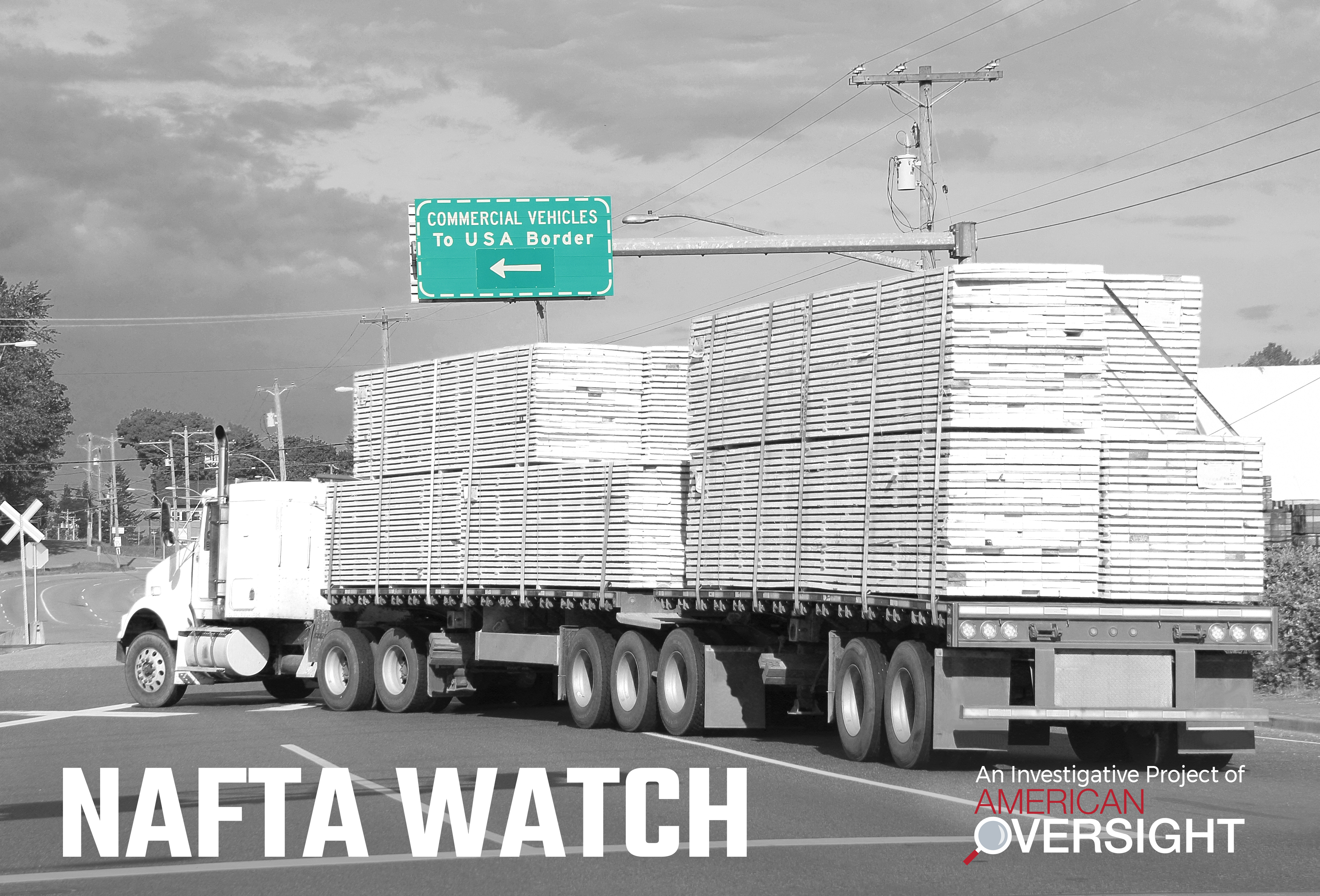American Oversight Launches ‘NAFTA Watch’
NAFTA Watch new investigative project of American Oversight examining mismanagement and private sector giveaways by the Trump administration during the ongoing renegotiation of the North American Free Trade Agreement.

New Investigative Project Examines Mismanagement and Corporate Giveaways by the Trump Administration During the NAFTA Renegotiation
Washington, DC – Non-partisan watchdog group American Oversight today announced the launch of ‘NAFTA Watch‘ – a new investigative project examining mismanagement and private sector giveaways by the Trump administration during the ongoing renegotiation of the North American Free Trade Agreement (NAFTA).
“From day one, the Trump administration’s handling of the NAFTA renegotiation has been a comedy of errors, with wildly shifting public statements, outlandish negotiating positions, and attacks on some of our closest trading partners and allies,” said American Oversight’s Executive Director, Austin Evers. “American Oversight is going to uncover whether the Trump administration is tanking the negotiations – either intentionally or through incompetence – putting countless jobs at risk. We’re also going to see whether the Trump administration’s tough talk towards the private sector holds up to scrutiny, or whether it’s merely a smokescreen for sweetheart deals to the president’s favored companies.”
In their time in office, President Trump and his trade team – including United States Trade Representative Robert Lighthizer and Commerce Secretary Wilbur Ross – have shown a bewildering lack of consistency in their goals and approach to the renegotiation of NAFTA. American Oversight’s suite of Freedom of Information Act (FOIA) requests – which encompass meetings, communications with Capitol Hill, negotiations with foreign governments, and internal talking points – seek to uncover whether the Trump administration is attempting to sabotage the NAFTA talks, despite the tremendous cost to American workers.
Additional FOIA requests target communications between negotiators and a range of industries, individuals, and trade associations with a financial stake in the negotiation. Key negotiators, including Lighthizer and USTR General Counsel Stephen Vaughn have spent years in Washington as lobbyists for various industries and special interest groups. Secretary Ross also has a substantial personal network of contacts with clear business interests in the outcome of negotiations.
Evers continued, “Candidate Trump promised us ‘the best trade deals,’ but what we’ve seen so far has been an administration flailing and risking untold economic damage.”